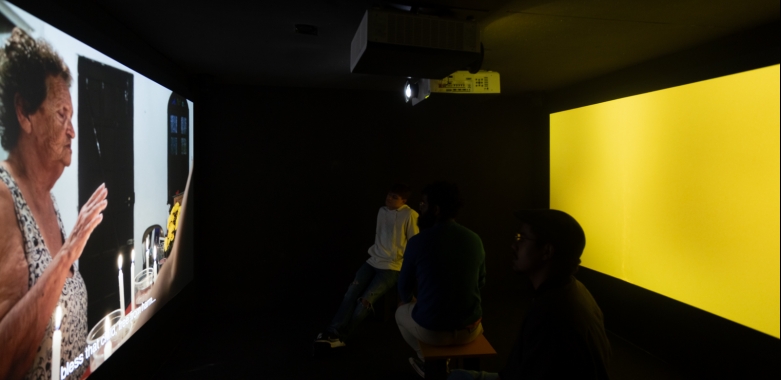In a domestic ritual, the artist's grandmother gives voice and passage to the caboclo Indaia, her guide, and spiritual relative, who invites us to communicate with other blood and more-than-human family members. She narrates her encounter, in the past, with this Amerindian spiritual entity, present in the spaces of Afro-Brazilian spiritualities. The term caboclo, here evoking spirits of healers linked to the people of the forests and the orixá Oxóssi, could be used, in a colonial context, referencing enslaved, catechized, or mixed-blood indigenous people, as opposed to those who escaped assimilation and Christianization. This encounter becomes the narrative plexus from which multigenerational stories emerge as enigmas to inhabit between worlds. Expanding the relational field around vision, the work unfolds into a window of interaction between the visible and the unseen. The rhetoric of reparation is analyzed amid the intimacy of family relationships and the secrets that unite these women across generations.


